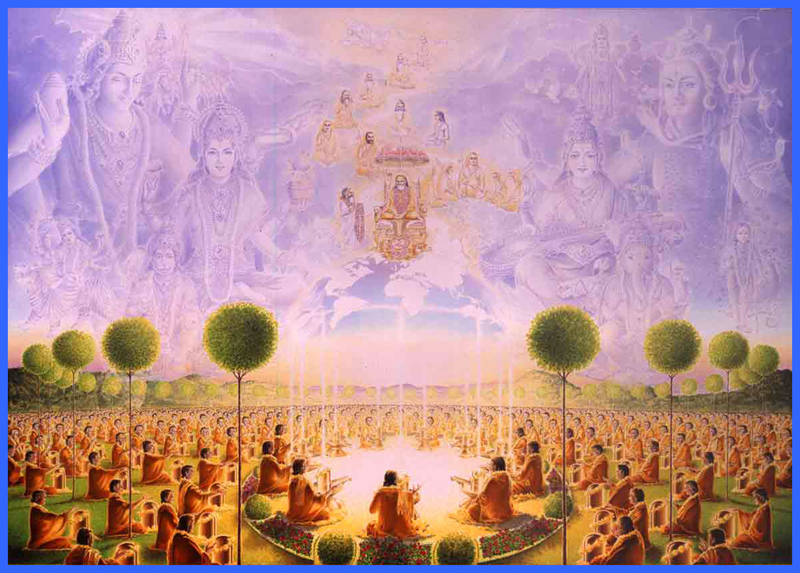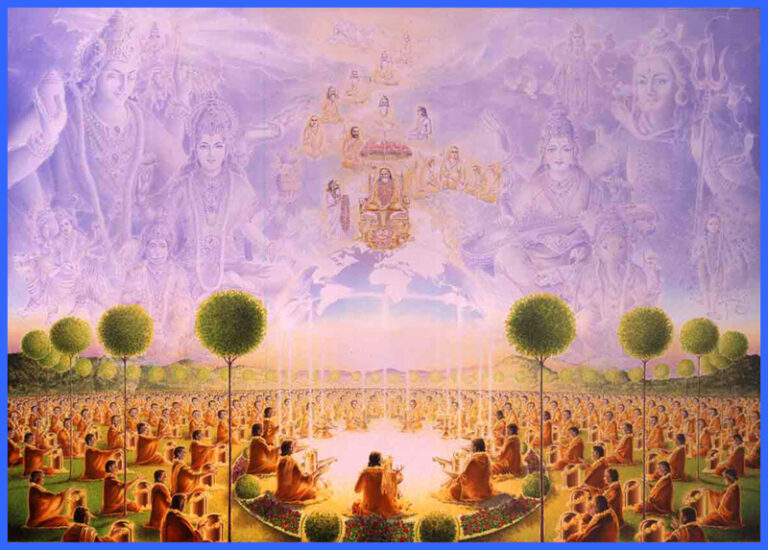Though I’ve lived in India for long, there still are some points that I find hard to understand – for example, why many so-called “educated Indians” become agitated whenever ‘Hindutva’ is mentioned. The majority of Indians are Hindus. India is special because of its ancient Hindu tradition and Westerners are drawn to it. Why this resistance by many Indians to acknowledge the Hindu roots of India? Why do some even give the impression that an India that values those Hindu roots is dangerous? Don’t they know better? Their attitude is strange for two reasons.
Where is the Cultural Identity
First, these people have a problem only with ‘Hindu’ India, but not with ‘Muslim’ or ‘Christian’ countries. Germany for example, is a secular country and 59 percent of the population are registered with the Protestant and Catholic Churches. Angela Merkel, the Chancellor, recently stressed the Christian roots of Germany and urged the population ‘to go back to Christian values’ Two major political parties, including Angela Merkel’s ruling party, carry ‘Christian’ in their name. Government agencies collect Church tax (8% of the income tax) and pass it on to Churches.
Germans are not agitated that Germany is called a Christian country, though I actually would understand if they were. After all, the history of the Church is appalling. The so-called success story of Christianity depended greatly on tyranny.

“Convert or die”, were the options given to the indigenous population of America some 500 years ago. In Germany, 1200 years ago, Emperor Karl the Great decreed death for refusal of baptism in his newly conquered realms. Heresy was put down with an iron hand. In the Nuremberg castle prison, one can see the torture instruments and chamber that were used during the inquisition.
Second, Hinduism is in a different category from the Abrahamic religions. Compared to Christianity and Islam, its history is undoubtedly the least violent as it spread by convincing arguments and not force. Hinduism is not a system that demands blind belief in dogmas and the suspension of one’s intelligence, but encourages using one’s intelligence to the hilt. Ancient rishis enquired into truth, discovered universal laws and showed how to live life in an ideal way. Hinduism comprises a huge body of ancient literature, covering Dharma and philosophy, music, architecture, dance, science, astronomy, economics, politics, among others. If any other western country had this kind of literary treasure, they would have proudly highlighted its greatness at every opportunity!
We Germans have to be content with one ‘ancient’ epic “Nibelungenlied’ which was written around the13th century and probably refers to incidents around 400 AD. That is how far back ‘antiquity’ reaches in Europe. Naturally Westerners consider the existence of Sri Krishna and Sri Rama as myths. How could they acknowledge a civilization much more ancient and refined than their own?
Is Indian Tradition any inferior?
Inexplicably, Indians cater to western arrogance and ignorance by downplaying and even denying their tradition. There is a “Copernicus Marg’ in New Delhi but Indian children are not taught in school that thousands of years before Westerners ‘discovered’ it, the Rg Veda mentions that the earth is round and goes around the sun . (Rg 10.22.14)

When I read some Upanishads, I was stunned at the profundity. Brahman is not partial; it is the invisible, indivisible essence in everything. Everyone repeatedly gets the opportunity to discover the ultimate truth and is free to choose his way back to it. Methods are given but not imposed! In my early days in India, I thought that every Indian knew and valued his tradition. Soon I realized that I was wrong!
A western colonized mindset
The British colonial masters have been successful in not only weaning away many of the elite from their ancient tradition but also making them despise it. That the ‘educated’ class could no longer read the original Sanskrit texts and believed what the British told them helped. This lack of knowledge and the brainwashing by the British education system is the reason why many ‘modern’ Indians are against anything ‘Hindu’. They don’t realize the difference between western religions that have to be believed (or at least professed) blindly, and which discourage, if not forbid, their adherents to think on their own and the multi-layered Hindu Dharma which gives freedom and encourages using one’s intelligence.
Most do not realize that on one hand, Westerners, especially those who dream to impose their own religion on this vast country, will applaud them for denigrating Hindu Dharma, because this helps western universalism to spread in India. On the other hand, many Westerners, including Church people, know the real value and surreptitiously appropriate insights from the vast Indian knowledge system, drop the original source and present it either as their own or make it look as if these insights had been known in the west.
If missionaries denigrated Hindu Dharma, it would not be so bad, as they clearly have an agenda. But sadly, many Indians assist them because they wrongly believe that Hinduism is inferior to western religions. They belittle everything Hindu instead of getting thorough knowledge. As a rule, they know little about their tradition except what the British told them, i.e. the major features are caste system and idol worship. They don’t realize that India would gain, not lose, if they solidly backed its profound and all inclusive Hindu tradition.
Hindu civilization is gradually being depleted of its valuable, exclusive assets. The Dalai Lama said that as a youth in Lhasa, he had been deeply impressed by the richness of Indian thought. “India has great potential to help the world,” he added.
Now then the question arises- When will the westernized Indian elite realize it?
(reposted from https://mariawirthblog.wordpress.com/2013/05/04/when-germany-is-christian-is-india-hindu/)


